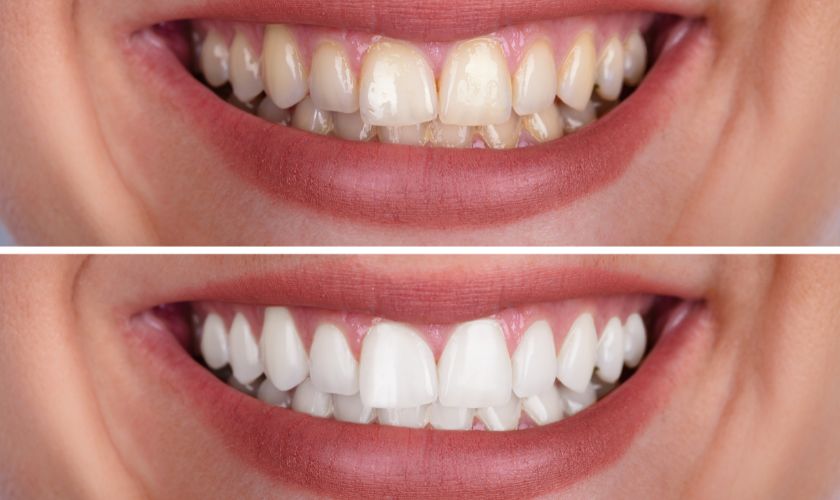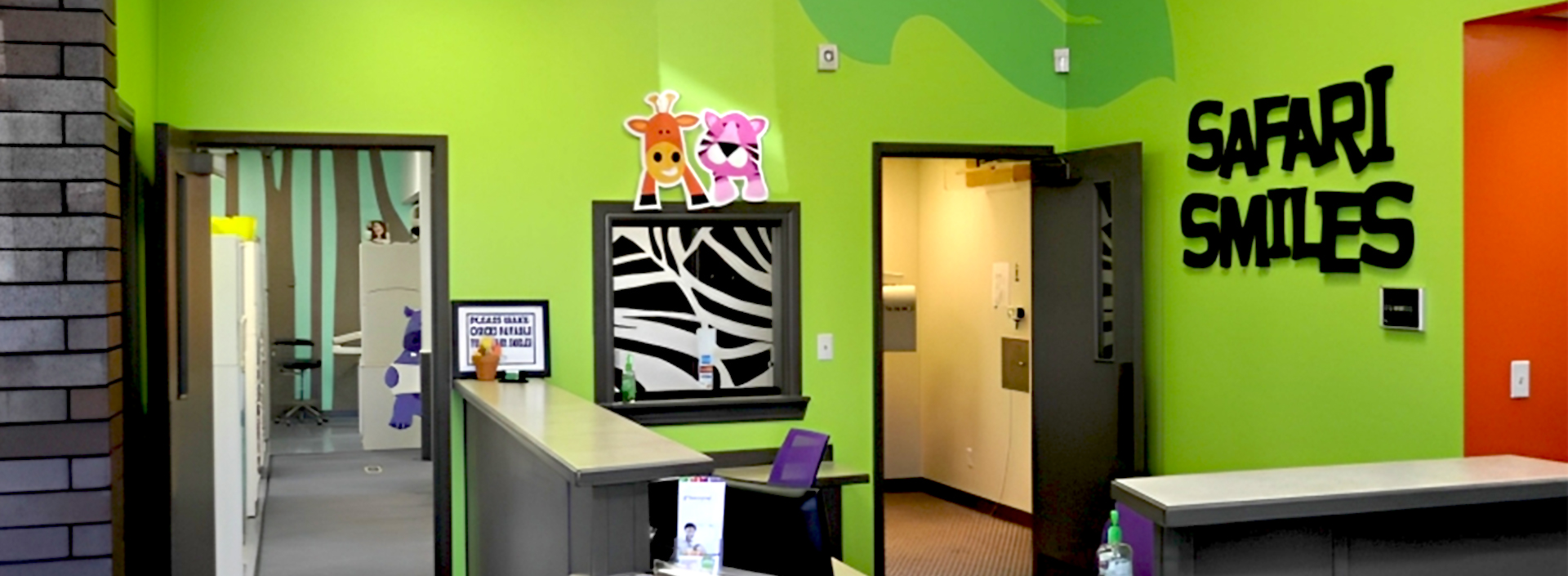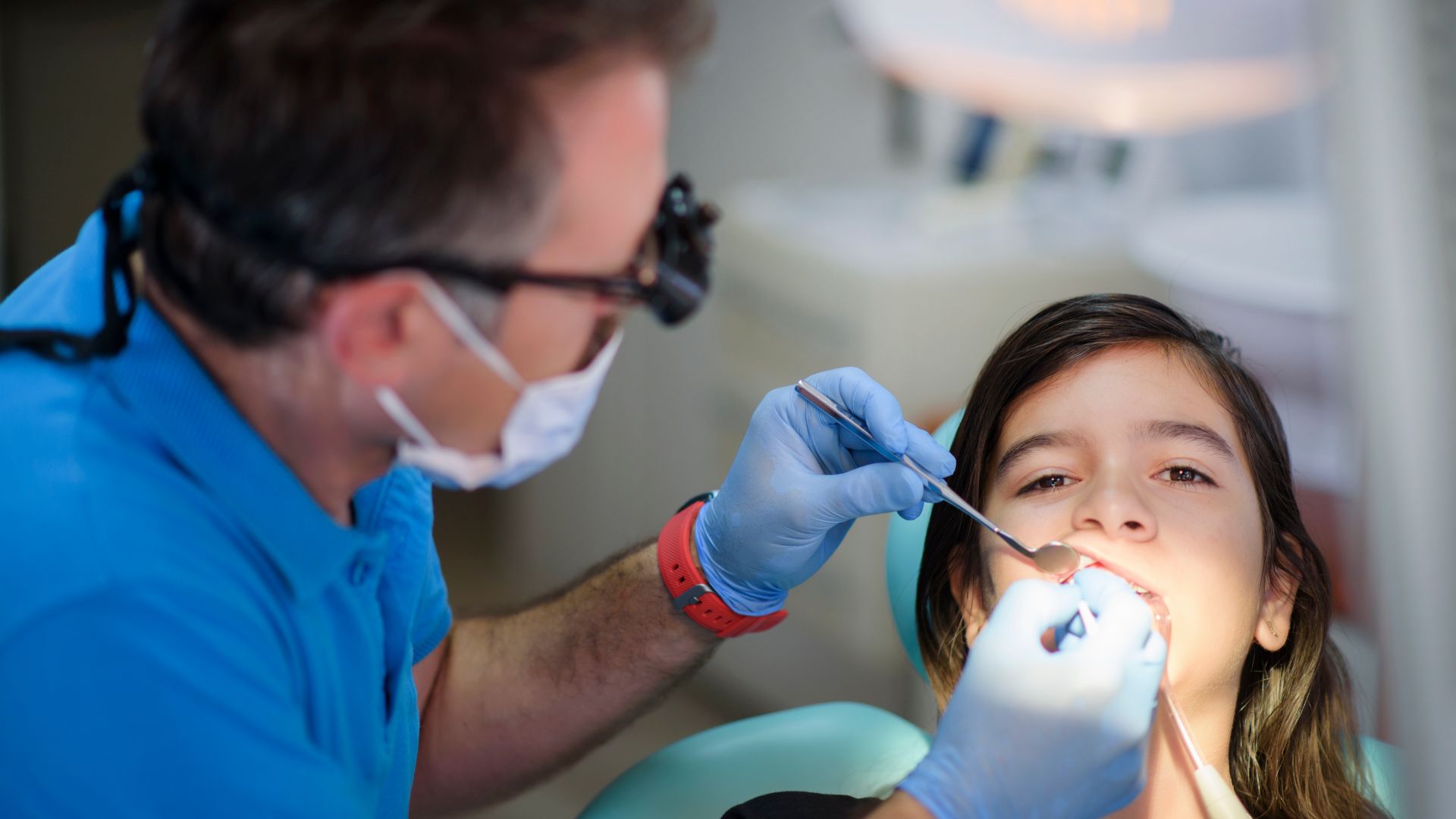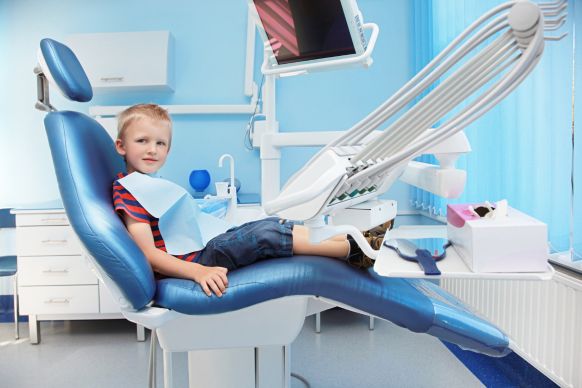The Ultimate Guide to Teeth Cleanings: Maintain Your Dental Health with Regular Check-ups

The Ultimate Guide to Teeth Cleanings: Maintain Your Dental Health with Regular Check-ups
Welcome to the Ultimate Guide to Teeth Cleanings! Are you ready to dive into the world of dental care and discover why regular check-ups are crucial for maintaining your oral health? Whether you’re a diligent brusher or someone who occasionally forgets to floss, this comprehensive guide will provide all the information you need to know about teeth cleanings.
From debunking common myths surrounding dental appointments to uncovering the benefits of professional cleanings, we’ll cover it all. So put on your dentist’s hat (metaphorically speaking) and let’s explore how these routine visits play a vital role in keeping those pearly whites shining bright!
Importance of Regular Dental Check-ups
Regular dental check-ups are a vital part of maintaining good oral health. Many people may underestimate the importance of these appointments, but they play a crucial role in preventing and detecting any potential problems with your teeth and gums.
During a regular dental check-up, your dentist will thoroughly examine your mouth for signs of tooth decay, gum disease, or other issues that may require treatment. They will also assess the overall health of your teeth and gums, checking for any abnormalities or changes since your last visit.
In addition to examining your mouth, the dentist will perform a professional cleaning to remove plaque and tartar buildup from your teeth. This is important because even with diligent brushing and flossing at home, it can be difficult to completely remove all plaque deposits.
By attending regular check-ups, you give yourself the opportunity to catch any dental issues early on when they are easier to treat. This can save you from more extensive procedures down the line and potentially help prevent tooth loss or serious gum infections.
Furthermore, regular dental visits can contribute to better overall health. Research has shown links between poor oral health and various systemic conditions such as heart disease and diabetes. By maintaining good oral hygiene through regular check-ups, you can reduce the risk of developing these detrimental conditions.
Scheduling regular dental check-ups is essential for ensuring optimal oral health and preventing future complications. Don’t wait until you experience pain or discomfort before visiting the dentist – prevention is always better than cure!
What Happens During a Teeth Cleaning Appointment?
During a teeth cleaning appointment, you can expect a thorough and comprehensive dental examination. The dentist or dental hygienist will start by examining your teeth and gums to check for any signs of decay, cavities, or gum disease. They may also take X-rays to get a closer look at your oral health.
Next, the dental professional will use special tools to remove plaque and tartar from your teeth. This process is known as scaling and involves scraping away the buildup that can’t be removed through regular brushing and flossing alone. It’s important because if left untreated, plaque and tartar can lead to tooth decay and gum disease.
After scaling, your teeth will be polished using a gritty paste that helps remove surface stains caused by food, drinks, smoking, etc. This step not only leaves your smile looking brighter but also makes it harder for plaque to stick to the smooth surfaces of your teeth.
Once the cleaning is complete, the dentist or hygienist may apply fluoride treatment to strengthen your tooth enamel. Fluoride is essential in preventing cavities as it helps remineralize weakened areas on the surface of the teeth.
They will provide personalized recommendations for maintaining good oral hygiene at home based on their assessment during the appointment. This might include suggestions on brushing technique or incorporating interdental cleaning methods like flossing or using an interdental brush.
Remember that each dental office may have slight variations in their approach to teeth cleanings based on individual patient needs and preferences. It’s always best to consult with your dentist about what specifically happens during their appointments so you know exactly what to expect!
Benefits of Professional Teeth Cleanings
Regular professional teeth cleanings offer numerous benefits for maintaining optimal dental health. A thorough cleaning by a dental hygienist removes plaque and tartar buildup that cannot be effectively removed through brushing and flossing alone. This helps to prevent gum disease and tooth decay.
Additionally, during a teeth cleaning appointment, the dentist or hygienist will perform a comprehensive examination of your oral health. They can identify early signs of potential problems such as cavities, gum disease, or even oral cancer. Early detection allows for prompt treatment and prevents more serious issues down the line.
Moreover, professional cleanings help to improve the appearance of your smile. By removing surface stains caused by coffee, tea, tobacco, or other substances, your teeth will look brighter and healthier.
Furthermore, regular teeth cleanings can also contribute to overall well-being. Poor oral hygiene has been linked to various health conditions including heart disease and diabetes. By maintaining good dental health through professional cleanings and proper at-home care practices like brushing twice daily and flossing regularly— you are reducing the risk of these systemic diseases.
Lastly but not leastly — perhaps one of the most important benefits is peace of mind! Knowing that you have taken proactive steps towards maintaining your dental health can alleviate anxiety about potential dental issues in the future.
Regular visits for professional teeth cleanings provide many advantages beyond just fresh breath! From preventing gum disease to detecting early signs of larger concerns; from improving appearance to supporting overall wellness – there are countless reasons why making regular appointments with your dental provider should be a priority in your healthcare routine!
Common Misconceptions and Myths About Dental Cleanings
There are several common misconceptions and myths surrounding dental cleanings that can lead to confusion or even neglect of this important aspect of oral health. Let’s debunk some of these myths to help you understand the truth about dental cleanings.
One common misconception is that if your teeth look and feel fine, you don’t need a professional cleaning. However, even if your teeth appear healthy, there can still be plaque and tartar buildup in hard-to-reach areas. Only a trained dental professional can thoroughly remove these deposits during a cleaning.
Another myth is that teeth cleanings are painful or uncomfortable. In reality, modern dentistry has come a long way, and most people find dental cleanings to be relatively painless. Dental hygienists use specialized tools and techniques to ensure your comfort throughout the process.
Some individuals believe that brushing and flossing alone are enough to keep their teeth clean, making professional cleanings unnecessary. While good oral hygiene practices at home play a crucial role in maintaining oral health, they cannot replace the thoroughness of a professional cleaning. A dentist or hygienist has the expertise required to detect early signs of gum disease or other issues before they become more serious problems.
It is also commonly believed that frequent dental cleanings will damage tooth enamel. However, when performed by a skilled professional using proper techniques, dental cleanings do not harm enamel but rather contribute to its preservation by removing harmful substances like bacteria-laden plaque.
Some people think that once they have had their wisdom teeth removed or received orthodontic treatment such as braces, they no longer need regular dental check-ups or cleanings. This is far from true! Oral health should always be maintained through routine visits regardless of any previous procedures you may have undergone.
Understanding these misconceptions will help you prioritize regular dental check-ups and maintain optimal oral health for years to come.
Tips for Maintaining Good Oral Hygiene at Home
Maintaining good oral hygiene at home is just as important as regular teeth cleanings at the dentist. By following a few simple tips, you can keep your teeth and gums healthy in between dental visits.
First and foremost, make sure to brush your teeth twice a day using a soft-bristled toothbrush and fluoride toothpaste. Brushing for two minutes each time will help remove plaque and bacteria from all surfaces of your teeth. Don’t forget to also brush along the gumline and tongue!
In addition to brushing, flossing daily is essential for removing plaque and food particles from between your teeth. Use about 18 inches of floss, winding most of it around one finger on each hand. Gently glide the floss up and down between each tooth, forming a C-shape around the side of each tooth.
Using mouthwash can provide an extra layer of protection against cavities and bad breath. Look for an antiseptic mouthwash that kills germs but doesn’t contain alcohol which can dry out your mouth.
A balanced diet plays a crucial role in maintaining good oral health too! Limit sugary snacks and drinks that promote cavity formation. Instead, opt for nutrient-rich foods like fruits, vegetables, lean proteins, dairy products (low-fat or fat-free), whole grains, nuts, seeds.
Don’t forget to replace your toothbrush every three months or sooner if bristles become frayed or worn out. A worn-out toothbrush won’t effectively clean your teeth.
Final Thoughts on the Importance of Teeth Cleanings
Maintaining good oral health is crucial for overall well-being. Regular teeth cleanings play a vital role in achieving this goal. By taking the time to visit your dentist for professional cleanings, you can prevent dental issues before they become major problems.
During a teeth cleaning appointment, your dental hygienist will carefully remove plaque and tartar buildup from your teeth, reducing the risk of cavities and gum disease. Additionally, they will provide helpful tips on how to improve your at-home oral hygiene routine.
It’s important to remember that professional teeth cleanings are not just about having a sparkly smile; they are essential for preventing serious health complications. Poor oral health has been linked to heart disease, diabetes, respiratory infections, and other systemic conditions. By investing in regular check-ups and cleanings, you are investing in your overall health.
Now that we have explored the importance of teeth cleanings let’s debunk some common misconceptions surrounding them.
One misconception is that if you brush and floss regularly at home, there is no need for professional cleanings. While maintaining good oral hygiene habits is important, it cannot replace the thorough cleaning provided by a dental professional. Plaque can still accumulate in hard-to-reach areas even with diligent brushing and flossing.
Another myth is that teeth cleanings are painful or uncomfortable procedures. In reality, most people experience little to no discomfort during their appointments. Dental professionals use gentle techniques and numbing agents when necessary to ensure patients’ comfort throughout the process.
To maintain optimal oral health between dental visits:
- Brush twice daily using fluoride toothpaste.
- Floss every day to remove plaque from areas where your toothbrush cannot reach.
- Rinse with an antimicrobial mouthwash after brushing and flossing.






